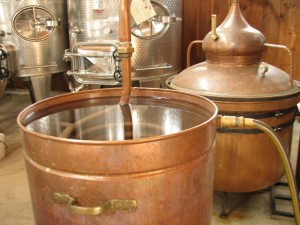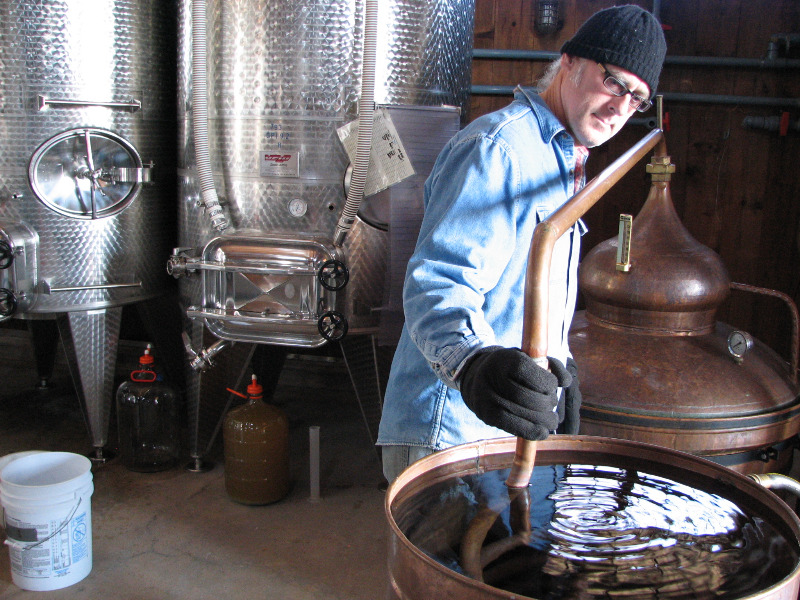David Page had his Newton-apple-falling-on-the-head moment in the basement bowels of a New York City restaurant.
A chef by trade, he and his wife, Barbara Shinn, traveled east from California and washed into New York City in 1990. By 1993, they had scrounged enough money together to open Home restaurant, a rustic, cozy place that celebrates traditional American cuisine. Soon, their 60-seat restaurant (30 inside, 30 outside) was jammed to the gills with adoring fans feasting on Skillet Fried Chicken, Whole Grilled Trout and the like.
Another restaurant would follow (Drovers Tap Room), a cookbook, prospects of more businesses in the neighborhood…it all became a blur for them as the long hours mounted up. The New York City restaurant world can be grueling, with the long hours, the continual operational breakdowns (you ain’t seen nothing until you’ve seen plumbing from the late 1800s back up on you — trust me), and the non-stop stress of working in a city which is essentially a giant pressure cooker.
While trying to decide what salary to offer the guy who was going to tend their recently purchased vineyard in the North Fork, he thought, “why am I trying to figure out how much to pay a guy to have a better life than me?” So they got out.
Leaving Home in the capable hands of trusted colleagues, they headed east again.
Relocating to the North Fork of Long Island in 1998, they took up roots and have dived in headfirst into the tenets of sustainable living and ecologically minded farming at their new project, Shinn Estate Vineyards & Farmhouse.
On my last visit, Barbara spoke at length about her extensive readings into biodynamics (only to be interrupted by a gas-guzzling, stretch Hummer that pulled up to their driveway and belched forth a gaggle of Long Island bachelorettes on a drinking binge). But much, much has been written about their great wines…
 This isn’t about their grape juice. This is about their spirits. David has been up to some antics with a 400-liter Alembic still. He’s continuing on a tradition of distillation in his family. I tried (and subsequently purchased for Hearth) the Eau de Vie and the Shine.
This isn’t about their grape juice. This is about their spirits. David has been up to some antics with a 400-liter Alembic still. He’s continuing on a tradition of distillation in his family. I tried (and subsequently purchased for Hearth) the Eau de Vie and the Shine.
The Eau de Vie (80 proof) is made from seyval (save-all) blanc grapes from Cayuga Lake in the Finger Lakes wine region. Once distilled, Page ages it in 3-year old cabernet franc barrels. How long, you ask? He kept it in barrel until he “tasted cab franc in the distillate, and then stopped.” With notes of cherry and cinnamon, it can be easily adapted into cocktails.
The Shine is made with the chardonnay lees from local, North Fork grapes, giving it a silky, voluptuous mouthfeel. But be warned: its a beast. Clocking in at the high end of the abv scale, its closer to a Grappa, in style. This is for sipping on a cold walk at night amongst the vines.
I had the pleasure of interviewing him. Here’s four questions with David Page about distilling in wine country:
Not a bad way to approach life…maybe I need to get out the basement office a bit more, and spend a few moments gazing at the stars above?

